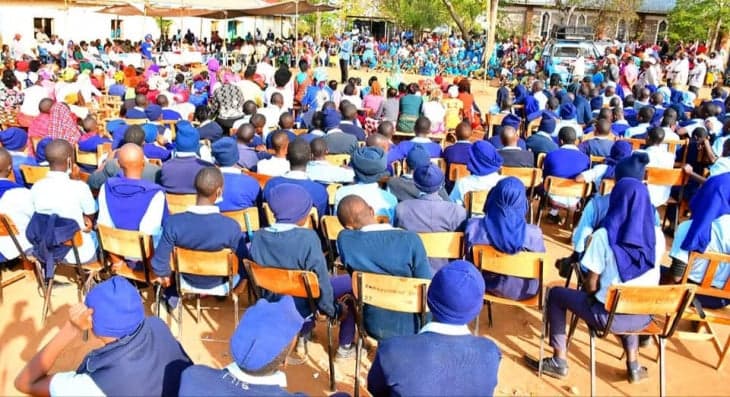We're loading the full news article for you. This includes the article content, images, author information, and related articles.
As the 2025 KCSE examinations enter their final stretch, the government has announced a raft of heightened security measures and a sweeping crackdown on digital malpractice that has seen 78 individuals arrested.

NAIROBI, Monday, November 17, 2025 (EAT) – The Kenyan government has significantly intensified security operations for the final week of the 2025 Kenya Certificate of Secondary Education (KCSE) examinations, a move underscored by the recent arrest of 78 individuals linked to exam malpractice. In a statement released over the weekend, Education Cabinet Secretary Julius Ogamba confirmed the arrests were primarily for leaking examination content on social media platforms and for impersonation.
The announcement comes as candidates nationwide prepare for the critical final papers. The Ministry of Education, in conjunction with the Kenya National Examinations Council (KNEC) and the Ministry of Interior, has reinforced protocols to safeguard the integrity of the national assessment. "We are taking every measure to safeguard the credibility of the examination process and the reputation of our education system," CS Ogamba stated on Saturday, November 15, 2025. He warned that any teachers, officials, or other personnel found complicit would face dismissal, loss of professional credentials, and criminal charges.
While not entirely new, three core security measures are being strictly enforced during this final phase. First, the mandatory use of armed security escorts for centre managers transporting examination materials from storage containers to the schools remains a critical directive. This protocol is designed to eliminate any possibility of interference with the papers during transit.
Second, there is a strict and absolute prohibition of mobile phones within the precincts of examination centres for all personnel, including officials and candidates. This measure is a direct response to intelligence showing that digital platforms like Telegram and WhatsApp have been abused to circulate exam content. KNEC had previously, in an August 2025 monitoring report, flagged 18 active Telegram channels for circulating alleged examination papers.
Third, the double collection of examination papers, a strategy successfully used in previous years to curb early exposure of afternoon papers, continues to be a key logistical component. Centre managers collect the second session's papers separately, minimizing the window for potential leaks.
The 78 arrests highlight a targeted, evidence-led operation by security agencies to dismantle networks aiming to compromise the examinations. CS Ogamba noted that in addition to the social media-related arrests, seven cases of impersonation have been detected, primarily involving adult candidates. The consequences for those found guilty are severe. Under the Kenya National Examinations Act of 2012, penalties include the cancellation of results, fines, imprisonment, and a ban from sitting any national examination for up to three years.
The government's firm stance aims to ensure a level playing field for the over 996,000 candidates registered for this year's KCSE across more than 10,000 centres. As the examination period concludes on Friday, November 21, 2025, all stakeholders are under pressure to ensure compliance and uphold the integrity of Kenya's national education standards. Meanwhile, KNEC has reported that the marking of the recently concluded Kenya Junior School Education Assessment (KJSEA) is already underway, with 11,342 examiners reporting to 24 marking centres.
Keep the conversation in one place—threads here stay linked to the story and in the forums.
Sign in to start a discussion
Start a conversation about this story and keep it linked here.
Other hot threads
E-sports and Gaming Community in Kenya
Active 9 months ago
The Role of Technology in Modern Agriculture (AgriTech)
Active 9 months ago
Popular Recreational Activities Across Counties
Active 9 months ago
Investing in Youth Sports Development Programs
Active 9 months ago